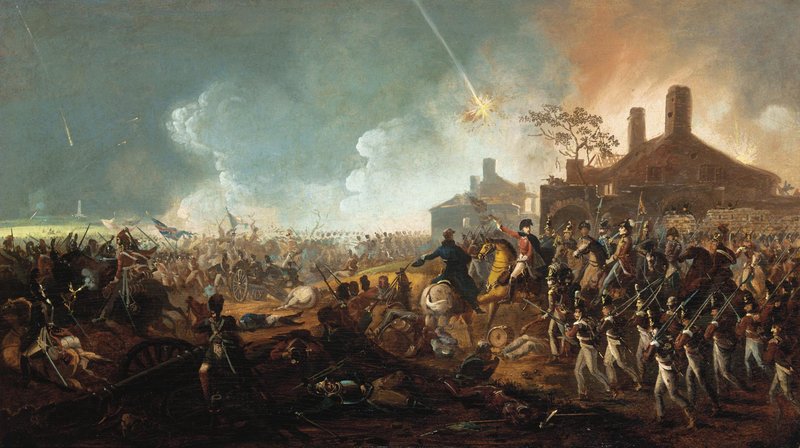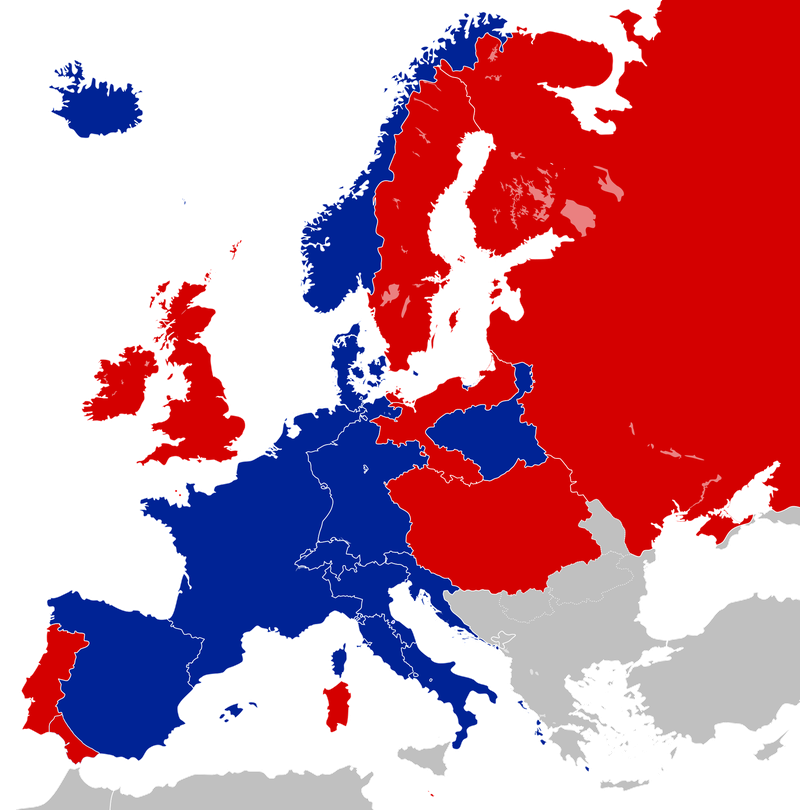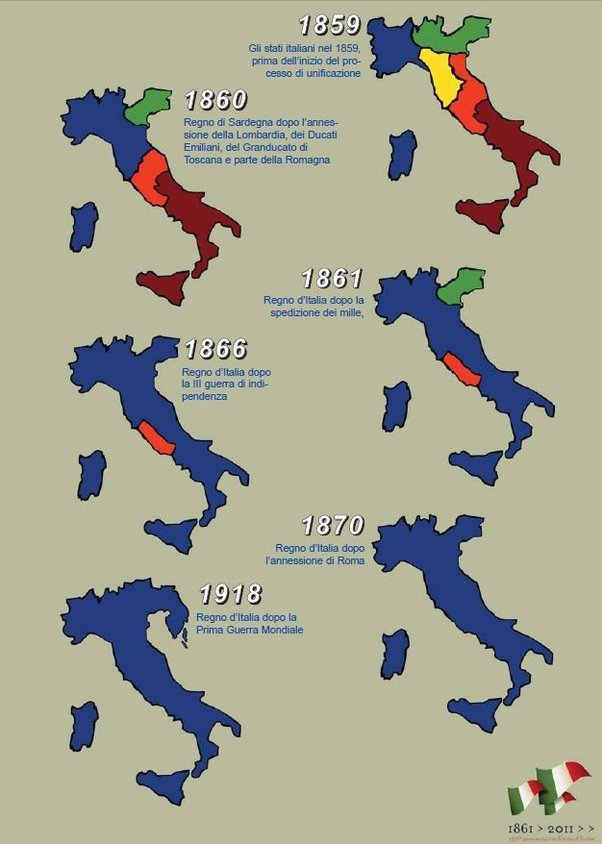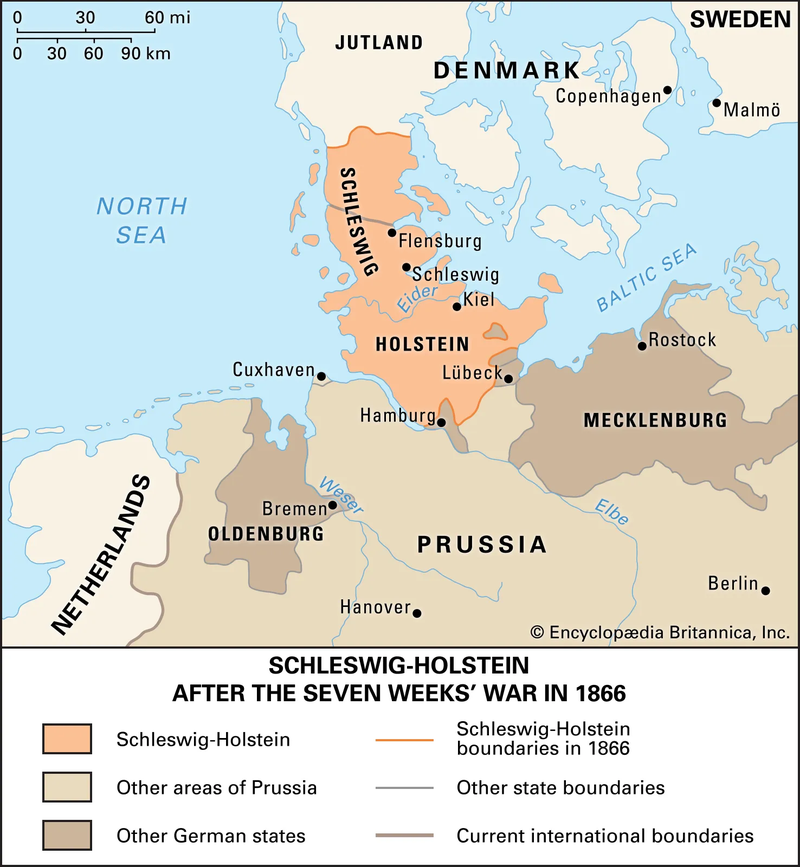The Balance of Power
- Europe had generally had a power balance with all great powers being equivalent in strength to one another.
- This generally prevented large scale conflicts.
- In the power balance of Europe no state had hegemony over a substantial part of Europe.
Napoleon
- However this would be changed by French Emperor Napoleon Bonaparte, who was a very important figure as he managed to drastically change the power balance in Europe.
- Napoleon slowly gained power after the French revolution, as his ingenious military tactics had led him to be a very successful general during the French Revolution (there were multiple conflicts during the French Revolution due to other conservatist European powers attempting to prevent France's new radical ideas from spreading) from 1789 to 1799.
- When Napoleon became emperor he would make important reforms and new laws.
- Many of his reforms still stand as a basis for modern law.
- Napoleon would lead the Napoleonic Wars and invade a very large area of Europe and it would only end once he got defeated and exiled for a second time.
- The first time he had managed to escape and rile up an army, eventually getting defeated at Waterloo.

- A painting of the Battle of Waterloo, where Napoleon's army was defeated by the reorganized armies of Great Britain and Prussia.

- A map showing the War of the Sixth Coalition, after which Napoleon would be exiled on the island of Elba. After Napoleon escaped exile the far "Hundred Days" War of the Seventh Coalition would occur, where Napoleon would finally be defeated.
Turmoil in Europe
- After the French Revolution and Napoleonic wars, Europe was in a very chaotic state.
- European rulers wanted to get rid of the idea of emperors as it meant that any person could become a powerful figure, meaning that kings could lose their positions of power.
- Napoleon had come from a mostly ordinary family (descendants of Italian nobility, although not very prestigious or rich) and was born in the French island of Corsica yet he had become one of the most powerful people on the planet.
- After Napoleon's defeat in the Battle of Waterloo the great powers of Europe tried to restore the power balance in the Congress of Vienna in 1814 to 1815.
- The four great powers that had previously formed the Sixth Coalition (Great Britain, Russia, Prussia and Austria-Hungary, and other smaller powers such as Sweden and Portugal) to fight against France in the Napoleonic Wars agreed to prevent any other revolution attempts across Europe.
- Some examples would be the Russian Empire's suppression of the Hungarian revolution against the Austrian Empire.
- Another agreement was to prevent any power in Europe from growing too powerful, such as Napoleon's French Empire.
- For example in the last Russo-Turkish War that occurred from 1877 to 1878, Great Britain and Austria-Hungary negotiated to accept the Treaty of Berlin which restricted Russia's military-political gains.
- The great powers also removed any changes to the world map made by Napoleon (the expansions and annexations of France being taken away) other than minor changes made by the Sixth Coalition.
- The system that had been built was flawed, and soon the power balance began to topple once again.
The Main Ideologies of the 19th Century
- Ideologies are very important as they can directly influence how people act.
- Europe had 4 main ideologies present in the 19th century.
Liberalism
- Liberalism advocated for the rights of citizens and freedom.
- Citizens should be able to what they want and be allowed freedom from the government.
- It was one of the main ideas of the French Revolution, which was also where it originated from.
- Liberalism was unwanted by the rulers of Europe as it threatened their power and control.
Conservatism
- Conservatism defended traditional values and went against radical ideas.
- It was the direct opposition to liberalism.
- It was conceived by the rulers of Europe in order to enforce and maintain their power.
Socialism
- Socialism believed that everything should be shared or co-owned.
- Social ownership to the means of production.
- The ideology was born from the Industrial Revolution.
- At the start of the industrial revolution work conditions were often very harsh, dangerous and mistreated the working class.
- Protest from the working class led to the idea of socialism.
- The idea would later be more widespread, mostly during the 20th century, thanks to Karl Marx's Communist Manifesto.
Nationalism
- Nationalism was a very widespread ideology across Europe.
- Nationalists wanted sovereign nation-states.
- It emphasized the idea of nationhood and the importance of language, culture and nationality.
- Nationalism caused rivalries between countries and within empires, as huge empires often encompassed many minority nations which all wanted their own own countries.
- This led to many revolutions and uprisings within empires.
- For example Poland wanting to split from the Russian Empire.
- Another would be the German Empire wanting to unify all German people.
The Unification of Italy
- The Italian unification was a slow process and took from 1815 to 1871.
- It was led by several rebellions and uprsisings.
- The leader of the unification was the Kingdom of Sardinia-Piedmont, or simply the Kingdom of Sardinia.

- A series of maps showing how Italy was eventually united.
- Central figures of the unification were Giuseppe Garibaldi, Giuseppe Mazzini and Viktor Emanuel.
- The unification managed to turn the scattered kingdoms of Italy into one state.
- Some kingdoms were conquered by force such as Sicily, whereas some joined voluntarily.
The Unification of Germany
- The unification of Germany was led by Prussia and it's central figures were chancellor Otto von Bismarck (most influential figure) and kaiser Wilhelm I.
- The Holy Roman Empire that held Germany together had collapsed and Prussia pushed for their unification.
Early Developments
- Like Italy, Germany was also compromised of many scattered kingdoms.
- The German confederacy was established in the Congress of Vienna in 1815.
- The confederacy was meant to organize the 39 German states at the time to replace the destroyed Holy Roman Empire.
- Zollverein or the Germans Customs Union was established in 1834.
- Prussia was the primary driver of the creation of the union.
- This union allowed close trade between the states and brought them closer together.
- Chancellor Otto von Bismarck would later use wars to bring separated German states together.
Wars During the Unification
The Second Schleswig War
- Also called the German-Danish War or the Prusso-Danish War, the war was the second conflict that arose over the settlement about the Schleswig and Holstein areas.
- Denmark, Prussia and Austria had a controversy over the areas as Schleswig had a mixed population of Danes and Germans, whereas Holstein was almost entirely German.
- Both the areas belonged to Denmark, which led to disputes as the German population in the areas wanted to join Germany.

- A map of Schleswig and Holstein.
- The war that started in 1864 was easily won by Germany and Prussia.
- Otto von Bismarck had made amends with Austria before the conflict, but after the war Bismarck stated that the territories would be given to Prussia as they were closer.
- This angered Austria and led to them to start a war.
The Austro-Prussian War
- The Austro-Prussian War has many names such as the Seven Weeks' War, German Civil War, Brothers War or Fraternal War.
- The war occurred in 1866 and it was fought between the Austrian Empire and the Kingdom of Prussia.
- As Austria had initiated the war, France and Great Britain wouldn't assist them.
- The war went well in the favor of Prussia and it ended in only seven weeks.
- Bismarck managed to take territories with Austria-supporting and Prussia-supporting minorities into Germany and the Prussian Empire.
- The states in Germany had to choose between Austria and Germany, and those who chose to side with Austria would be annexed by Bismarck after the war.
- After the war the power in German states shifted away from Austrian hegemony and towards Prussian hegemony.
- Prussia and Germany were very similar so this was an important step in the unification of Germany.
The Franco-Prussian War
- The Franco-Prussian War was a conflict between the Second French Empire and the North German Confederation led by the Kingdom of Prussia.
- It lasted from 1870 to early 1871.
- Spain needed a new king and Otto von Bismarck wanted it to be a Prussian king.
- France didn't want this however, because if that were the case it would be in a dangerous scenario of being surrounded by German-led countries.
- Bismarck wanted to negotiate with France, however he deliberately worded things in order to provoke France into declaring war.
- Being the aggressor, France wouldn't be liable for support.
- After tough fighting the French Emperor Napoleon III was captured and the war would continue for another 5 months continued by the Government of National Defense.
- Eventually French armies in northern France and besieged Paris for over 4 months until it fell in January 1871.
- This effectively ended the war.
The Breaking of a Power Balance in Europe
- Thus Otto von Bismarck managed to place a German noble as the king of Spain.
- Additionally Germany had been united with any immediate threats dealt with.
- Germany and Prussia had become very powerful and despite the fact that Bismarck didn't want to start any further wars after the unification, this greatly threatened the European powers.
Definitions
Image Sources
https://www.history.com/topics/european-history/battle-of-waterloo